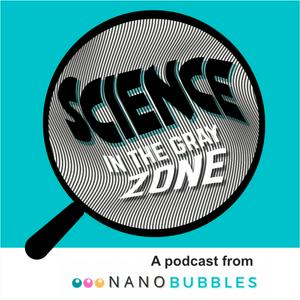Why corrections seem so hard?
Science in the Grey Zone is a podcast dedicated to explore error correction and the intricate pathways of the scientific publishing system.This is the second episode of our new season, in which we interviewed 17 sleuths at the “Scientific literature decontamination” symposium held in Paris in September 2024. In this episode, we ask science sleuths: Why is correcting the literature so difficult? And what are the biggest obstacles to making it happen?We’ll be hearing from Lonni Besançon, Ivan Oransky, Nick Brown, Jana Christopher, Elisabeth Bik, Jennifer Byrne, David Sanders, Raphaël Levy, David Bimler, Anna Abalkina, Nick Wise, Reese Richardson. Speakers (listed in order of appearance): Lonni Besançon, science sleuth & Assistant Professor of Visualization at Linköping University, SwedenIvan Oransky, journalist at New York University’s Arthur Carter Journalism Institute and co-founder of Retraction WatchNicholas Brown, science sleuth. BA in Engineering and Computer Science from the University of Cambridge (UK) & a PhD in Health Psychology from the University of Groningen (Netherlands).Jana Christopher, leading Image Data Integrity Analyst working for various journalsElisabeth Bik, science sleuth/ research integrity consultant & microbiologist who has worked for 15 years at Stanford University and 2 years in industry.Jennifer Byrne, Director of Biobanking - NSW Health, and Professor of Molecular Oncology at the University of Sydney, Australia.David Sanders, science sleuth & Associate Professor of Biological Sciences at Purdue UniversityRaphaël Levy, professor of physics at the Université Sorbonne Paris Nord & coordinating PI of the ERC Synergy grant NanoBubbles (How, when and why does science fails to correct itself?).David Bimler, science sleuth & retired psychologist formerly based at Massey University in Palmerston North, New ZealandAnna Abalkina, research fellow at Freie Universität Berlin (Germany). She was recently named one of Nature’s 10, a list of people who shaped science in 2024Nicholas Wise, fluid dynamics engineer & research integrity manager at Taylor & FrancisReese Richardson, PhD candidate working in metascience and computational biology at Northwestern University.DatasheetNarration: Masha MatalaevPlot: Mady BarbeitasProduction: Guillermo Vargas Quisoboni - Chakalaka MedialabRecording and editing: Martin Arbelaez, Guillermo Vargas Quisoboni & Guillaume FrançoisVisual ID: Guillermo Vargas Quisoboni This podcast has been financially supported by 'NanoBubbles: how, when and why does science fail to correct itself', a project that has received Synergy grant funding from the European Research Council (ERC), within the European Union’s Horizon 2020 programme, grant agreement no. 951393.
